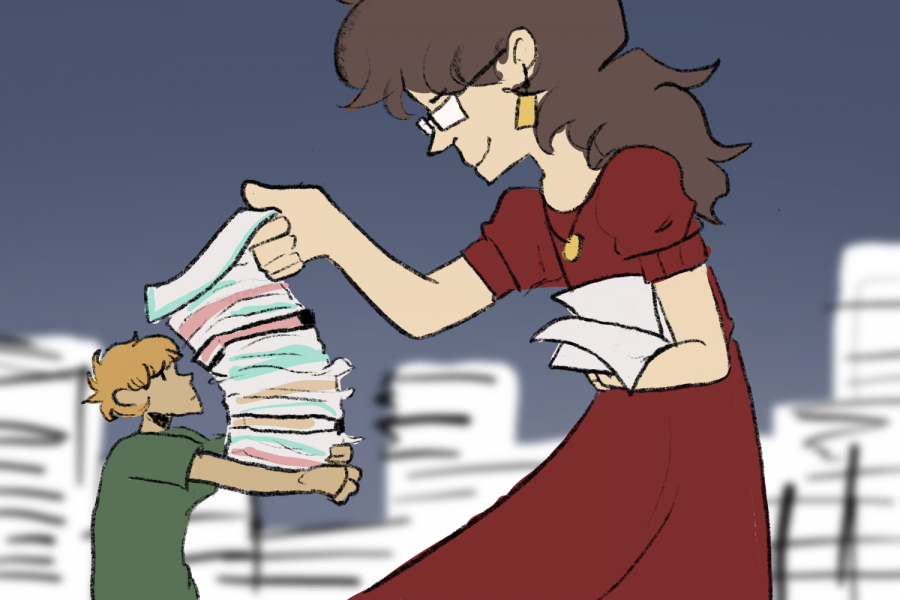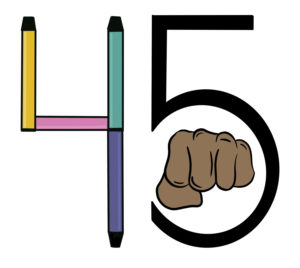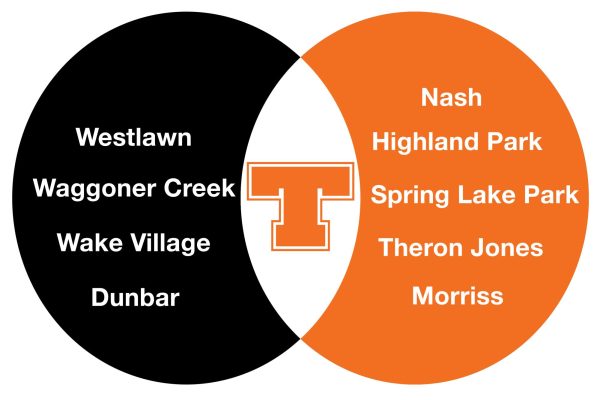Rights or rebellion?
Students should be able to stand up to authority figures in school system
April 26, 2021
Students are taught at a young age the rules to follow to be considered a “good student” in class, including not questioning the teacher, but should this rule still apply to adolescents?
As students become older, their brains are maturing which allows them to be able to feel more confident in displaying their opinions and beliefs. According to social norms, a student trying to explain their point of view is considered disrespectful if it goes against what the teacher said. Standing up to authority figures in the school should be normalized because it goes against what was taught to be a basic human right to not allow this and adolescents should be given the same amount of respect as the people over them.
From an early age, children are taught, not only by their parents but by their teachers as well, to stand up for themselves. Regardless of the fact that most of the time this referred to the bully on the playground, a lot of the lessons learned during childhood are meant to be applicable to many situations that may occur later in life.
America has a unique set of principles that ensure citizens of all ages certain rights, among these is the first amendment allowing freedom of speech and expression. If the Bill of Rights applies to all citizens, then why does the mere act of expressing one’s opinions not apply to students in the school system?
Students cannot be taught that these rights must be protected because of their importance in the foundation of America as a basic human right if it is stripped from them based on their location at a certain time of the day. School is a place for learning, but it is not just about the information in a textbook. School was designed so that life lessons are intertwined with the curriculum being taught.
While teenagers are taught to stand up for themselves, it is not always in a respectful or mature manner because they were only prepared to deal with their peers in this type of situation. This would not occur if the school system held up to its standards as a “safe learning environment” and taught students how to present their side of things in a respectful manner, but instead, students are taught that having a difference of opinion with a teacher or authoritative figure is considered an act of rebellion.
As students get older, they are expected to be mature enough to handle the countless responsibilities placed upon them by their parents, teachers and coaches, but if they are mature enough for that, then why is it that students are not considered mature enough to respectfully voice their opinions to authority figures and be heard?
As cognitive maturity increases during adolescence, teenagers feel more capable of expressing themselves to others in a way that is comprehensible. This brain maturity provides a shift in the way adolescents think going from concrete to abstract — an adult way of thinking. As students develop this adult way of thinking, they want to argue their platforms because they are settling into their self-identity and finding out who they are. Productive class environments are built on the foundation of respect, but respect goes both ways.
Teachers must demand respect for the classroom to function properly, but it is hard for students to provide when they do not get the same in return. Teenagers just want their opinions to be heard. Dismissing a student’s reasoning because they are “too young” is just an excuse for authoritative figures to be tyrannical. By letting a teenager voice their opinion, a lot of tension can be removed and respect can be earned.
Although many people may argue that teenagers are not mentally capable of having mature conversations, it has been proven that the brain develops during adolescence enabling teenagers to participate in an adult way of thinking. Problems seem to occur when students are denied the ability to voice their opinions. While adolescents obtain the mental maturity to have an adult conversation, they still have numerous amounts of hormones that cloud their judgment. When students get shut down or ignored, the frustration of not being heard causes teens to lash out in angst. This time in a young adult’s life is crucial to discovering their self-identity through their opinions and views, but by telling them these are irrelevant, it causes more confusion than what is necessary. To cope with this confusion, teenagers may act out of pure emotion instead of reasoning.
A simple discussion turns disrespectful when one side is not willing to hear the other side out. Instead of assuming students are going to be disrespectful and not listening to their views at all, teachers should be willing to hear them out and teach them how to voice their opinion in a respectful manner. In the end, students should be learning this skill that will be applicable to the real world, and there is hardly a better place to learn that than school.
Teachers should be willing to follow up with what they teach, such as freedom of expression and standing up for one’s self and allow students to voice their opinions in a respectful manner without facing serious repercussions. Adolescence is a time of self-discovery as one enters the world as a young adult, so they should be treated with the same amount of respect as the people over them. Many conflicts can be resolved by simply listening to a student’s point of view. All teenagers want is someone to respectfully hear them out instead of dismissing them on the account of their age.





















